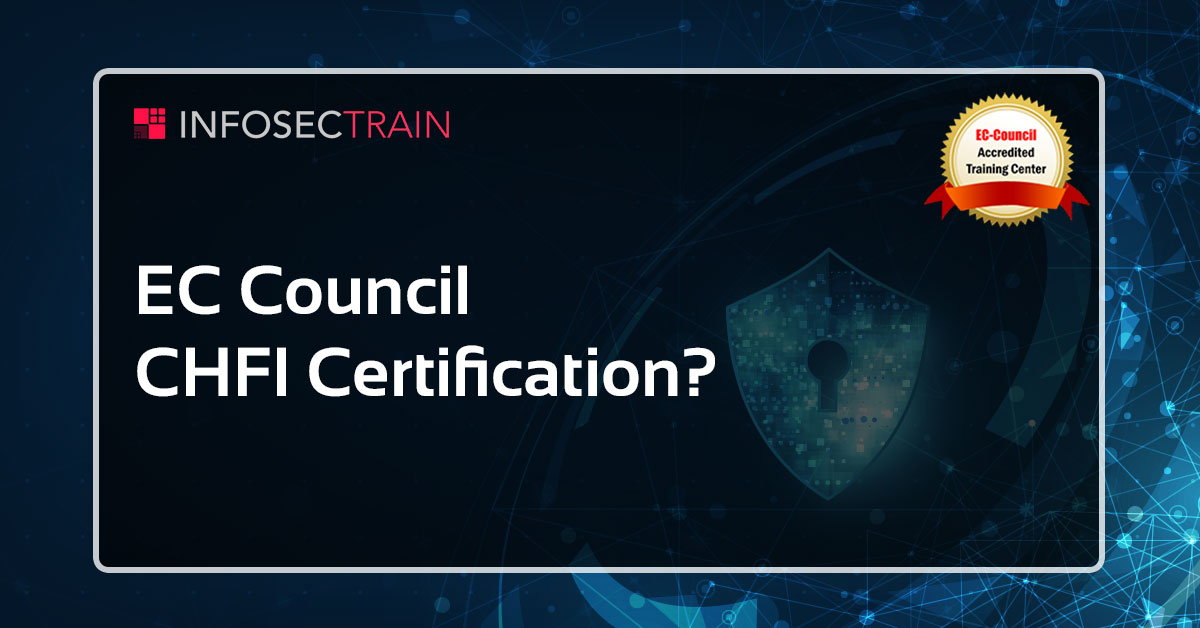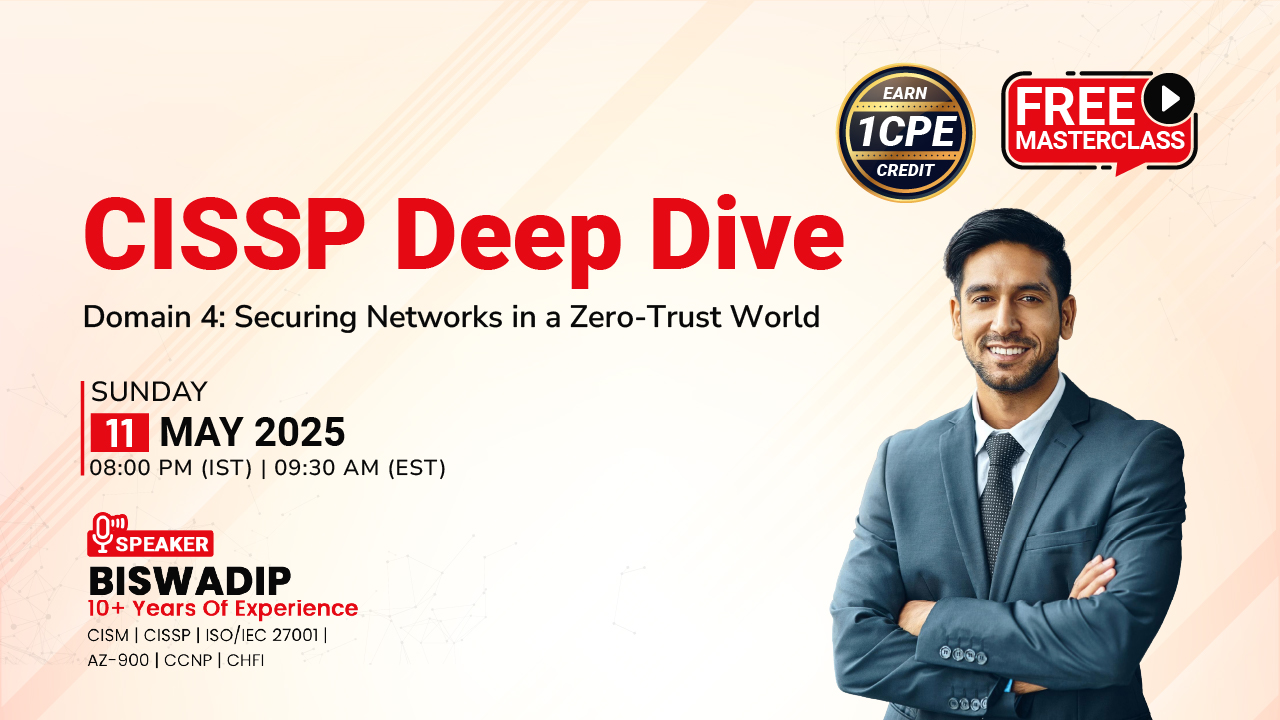How to prepare for EC Council CHFI Certification?
Need for Cyber Forensics.
Recent years have seen digital forensics become an integral part of the cybersecurity community. This field helps us in collecting, preserving, analyzing, and reporting the evidence against cybercriminals accused of breaking the law. It works on the principle that ‘Every contact leaves a trace’ which can be followed back by forensic experts to gather evidence that could be useful for the prosecution of these criminals. Forensics, which is a combination of technology and law is not only useful in investigation but also maintaining the integrity of data and conducting audits that would protect the organization from further attacks.
Why choose CHFI?
The Computer Hacking Forensic Investigator (CHFI) certification by EC Council endorses an individual with all the necessary skills to be an adroit forensic investigator. This certification is ANSI accredited and recognized all around the world. It covers all the latest technologies and solutions developed to date in the forensic domain. The hands-on sessions that involve forensic tools consume almost 50% of the entire course and give a practical approach to the learning experience. The skills attained by this certification are:
- Utilizing tools and techniques to perform forensic analysis.
- Recovering hidden, deleted files along with the metadata.
- Implementing threat intelligence to secure the organization.
- Analyzing the evidence to identify How, When, and Where the intrusion emerged.
- Procedure for implementing and documenting the investigations.
- Knowledge of regulatory compliance standards.
Prerequisites
CHFI Certification is challenging and requires immense knowledge in the field of forensics which can be obtained through CHFI training. The two available options to appear for the certification exam are,
- Attend a CHFI Certification Training Program provided by the EC council or com.
- To Obtain CHFI Certification without CHFI Training. However, for this, it is mandatory to have two years of work experience in the field of information security.
Mode of learning
It is very important to choose the kind of learning model that is convenient and beneficial to you. CHFI training that provides in-person coaching can be opted by those who have a tight schedule, while others can go with online coaching.
| No. of questions | : | 150 |
| Exam duration | : | 4hours |
| Exam type | : | Multiple Choice |
| Exam prefix | : | 312-49 |
| Latest Version | : | CHFIv9 |
Multiple question banks are set by the EC council to maintain the integrity of the exam. The exam requires both theoretical and practical knowledge. The passing score varies as per the difficulty level of the question bank.
Preparation
The study materials written by industry experts will serve you with immense knowledge about the course. Refer CHFI training materials from various sources to attain a complete understanding of the concepts or join a CHFI Certification Training program to receive the guidance of experienced professionals. Revising the entire syllabus and practicing the hands-on sessions will help you recognize the topics that need improvement. Before you appear for the CHFI Certification exam make sure you have profound knowledge about the following six domains:
| Domain | Description | No.of questions | Weightage |
|---|---|---|---|
| Forensic Science | Besides the objectives and key concepts in computer forensics this domain also elaborates on the type of web, email, and network attacks possible and explains the methodology involved in forensic investigation. | 22 | 15% |
| Regulations, Policies and Ethics | It focuses on the laws, acts, and ethics to be followed while testifying along with the issues faced during the investigation. | 15 | 10% |
| Digital Evidence | This domain provides deep knowledge about different types of file systems and concepts like imaging and file carving, that are used to collect evidence from those systems. | 30 | 20% |
| Procedures and Methodology | This domain includes the legal practices to be followed by a forensic expert during their investigation and also explains various concepts like anti-forensics and network forensics. | 30 | 20% |
| Digital forensics | It consists of different techniques for password cracking and data recovery used during forensic analysis. It also gives detailed information about the different types of forensics. | 37 | 25% |
| Tools/Systems/Programs | It introduces different tools according to the kind of forensic analysis we need to perform. | 16 | 10% |








 1800-843-7890 (India)
1800-843-7890 (India)